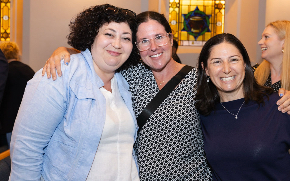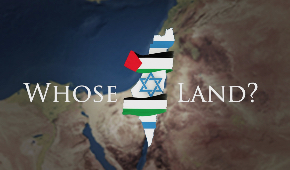Yom Hashoah 2025 Marks 80 Years Since Liberation
A solemn crowd of over 1,000 filled Sydney’s City Recital Hall on Sunday, 27 April, for the 2025 Yom Hashoah Commemoration, honouring the memory of the six million murdered Jews and marking 80 years since the liberation of the Nazi death camps.
This year’s theme, “Out of the Depths: The Anguish of Liberation and Rebirth”, resonated powerfully throughout the evening presented by the NSW Jewish Board of Deputies. The ceremony opened with rare footage of a Jewish prayer service held at Dachau just days after liberation, followed by a haunting Yiddish medley performed by Sasha Fisher and Chutney Unplugged. Songs like “Somewhere Over the Rainbow” and “The White Cliffs of Dover”, reimagined in Yiddish, brought emotional depth to the evening.
Among the notable attendees were Governor of New South Wales Margaret Beazley AC KC, members of federal and state parliaments from across the political spectrum, consuls general from multiple countries, leaders from interfaith and multicultural communities, and representatives of major Jewish communal organisations.

Survivors Dr Dasia Black, Jack Meister OAM, Ana and Gaby Deleon, Lucy Chladek, Paul Drexler (supplied)
NSW Jewish Board of Deputies President David Ossip reflected on the heavy duality of liberation, a moment of freedom met with overwhelming grief and uncertainty. “Liberation was not unbridled joy,” he said. “There was no script to follow, no guarantee of rebirth.”
He warned that today’s challenges, including hostages still held in Gaza, emboldened extremism, and geopolitical volatility, require moral clarity. “Standing on the shoulders of our Shoah survivors at this uncertain moment, we must recommit ourselves to their example. To rebuild a fractured world, we must live lives of courage, memory, and resolve.”
Survivor testimonies formed the heart of the evening. Lucy Chladek spoke of her last glimpse of her father, bringing soup to the camp. “I have never seen such fear in his brown eyes,” she said. Ana Deleon recalled the bombing of Budapest and sleeping on two armchairs in a lice-ridden ghetto. “It is so much less effort to love than to hate,” she said. “I’m a happy old woman, and I am very Jewish.”
Dasia Black told of hiding under a Catholic name with green eyes and blond hair. “I used to say Dasha was Polish. Now I say it is short for Hadassah, and I want everyone to know I am Jewish. And I will fight hatred with every part of me.”
Paul Drexler described liberation from a train. “We screamed. We could not believe our suffering had ended,” he said. “A soldier gave me a food bar and told me to take one bite a day. It was all my body could handle.”
Following their video tributes, six survivors – Dasia Black, Lucy Chladek, Ana and Gaby Deleon, Paul Drexler, and Jack Meister OAM – lit candles in memory of the six million murdered Jews. Cantor Zvi Teichtahl of The North Shore Synagogue then recited “El Malei Rachamim” and “Kaddish”, his voice trembling as it soared through the hall.

Sasha Fisher, Ben Adler (supplied)
Keynote speaker Dr Helen Lewis, daughter of British Army combat cameraman Sgt Mike Lewis, delivered a reflection that moved many to tears. She recalled her father’s experience filming the liberation of Bergen-Belsen, where 10,000 corpses lay unburied. “I thought time would make me forget,” he wrote. “It didn’t.”
Dr Lewis explained that the footage became vital evidence and moral testimony. “To view such images is not enough,” she said. “True understanding requires context and reflection. The dead still cry out to us. And today, we hear them and remember.”
The program honoured not just survivors, but also the brave few who risked everything to save others. Bill Marynissen spoke of his paternal Dutch grandparents, Henry Kiss and Elizabeth Marynissen, who sheltered a Jewish baby known as Bobby. “They saw a child in danger and chose decency over fear.” That child survived and, decades later, was reunited with the Marynissen family in a moving reunion in Paris.
Representing the third generation, Lisa Solomon kept a promise to her grandfather Ziggy Gelber, who survived the camps alone after losing his entire family. “I promised to share his story and ensure it would never be forgotten,” she said. “He was finally free, and he would have been 100 this week.”
In a powerful moment, she drew a direct connection between past and present: “We remember both the victims and survivors of the Holocaust, and of that Black Shabbat , October 7. We speak the names of the 59 hostages still enduring unimaginable suffering in the tunnels beneath Gaza, nearly 19 months on. It is hard to comprehend how, in a post-Holocaust world, those who declare ‘never again’ now stand not with the victims of that horrific attack, but with those who threaten to repeat it.”
As the ceremony drew to a close, the audience joined in singing the Partisan Song, “Hatikvah”, and the Australian national anthem. The final line lingered: “Mir zaynen do” – We are here.








